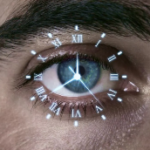Cataract FAQs
Here are answers to a few of the most commonly asked questions we get about cataracts and cataract surgery.
My doctor said I have cataracts in both eyes. Should I get surgery now or wait until it really bothers me?
If you’ve been told you have cataracts, you may not need surgery immediately. But over time your cataracts will cause loss of vision. The decision for cataract surgery is based on when your vision difficulties start to interfere with your normal activities, like driving, reading, work, or hobbies. Symptoms of cataracts include dim, blurry, or yellowed vision. Poor vision due to cataracts can be a serious health risk.
Many studies have found that cataract surgery can improve the quality of life, reduce the risk of falling, and result in fewer car crashes. In addition, one study found that those who had cataract surgery had a 40 percent lower long-term mortality risk than those who did not.
Does everyone eventually get cataracts?
Cataracts are part of the natural aging process. And yes, most people eventually do get cataracts. In fact, according to American Academy of Ophthalmology (AAO), close to 25.7 million Americans over age 40 have cataracts and the number is projected to increase to 45.6 million by 2050. Cataract surgery is the most common elective surgical procedure among patients over the age of 65 in North America.
Can cataracts be reversed or prevented?
Wearing ultraviolet (UV) protecting sunglasses may help reduce the progression of cataracts. In addition, a balanced diet containing a reasonable amount of antioxidant vitamins may help slow the progression of cataracts, while supporting overall health.
Do cataracts occur in both eyes at the same time?
Generally, cataracts progress at about the same rate in both eyes; however, many people seem to notice cataract symptoms in one eye first.
Are all cataracts the same?
There are three types of cataracts:
- A nuclear cataract forms in the lens. Those over the age of 65 often develop this type of cataract. More than half of all Americans over the age of 65 will develop this type of cataract.
- A cortical cataract forms in the lens, then grows from the outside to the center of the lens. Diabetics seem to develop this type of cataract more often.
- A subcapsular cataract forms in the back of the lens. Those with diabetes, far-sightedness, or retinitis pigmentosa may be at a higher risk to develop this type of cataract.
I’m having trouble seeing at night. Could my night blindness be caused by cataracts?
Because aging and vision problems go hand in hand, if you’re over 50 you’re at greater risk of suffering from night blindness. Cataracts—where the lens of the eye becomes cloudy, resulting in blurry or distorted vision—could be the cause. If you were happily driving at night 10 to 12 years ago and avoid it now, the most common cause is cataracts.
How much does cataract surgery cost?
At Ophthalmic Consultants of the Capital Region, our cataract surgeons work closely with you in customizing a cataract surgery plan that works for your lifestyle, vision needs, AND your budget. We customize a cataract surgery plan for each patient depending on their budget, vision goals, and individual needs.
Once you’ve received a cataract diagnosis, you’ll meet with one of our cataract surgeons to discuss a custom treatment plan. A member of our staff will then go over the total estimated costs and your insurance. Ophthalmic Consultants of the Capital Region works with CareCredit® to provide flexible and affordable payment options to qualified applicants.
The total cost of cataract surgery is dependent on a number of factors and varies from patient to patient. Some of the factors that affect final cost are:
- Your insurance plan coverage (deductible, co-pay)
- The technology used during surgery (specialized, custom cataract surgery or traditional cataract surgery)
- The type of intraocular lens (IOLs) that the doctor recommends for placement once the cataracts are removed (standard monofocal IOL or premium IOL)
- Surgeon’s fees
- Facility, anesthesia, and equipment fees
- Pre-operative exams and post-surgical care including prescriptions needed after surgery
I’ve heard a lot about laser cataract surgery. I know that there are extra costs that my insurance will not cover. Is it worth paying the extra cost or should I stick with the traditional cataract surgery?
Traditional cataract surgery is very successful in restoring vision for many patients. In fact, it is the most frequently performed surgery in the United States; more than 3 million cataract surgeries are done each year. Traditional cataract surgery is dependent on a surgeon’s skill, volume, and experience.
For decades, we’ve performed traditional cataract surgery, performing thousands upon thousands of procedures with great success. But now there is a new tool in the cataract surgery arsenal—the femtosecond laser system. Evidence has shown that there is NO increase in accuracy and precision over expertly performed traditional cataract surgery.
So, is the extra money for laser-assisted cataract surgery worth it? Not usually. What is most important is that you work with a board-certified ophthalmologist who is skilled and experienced in cataract surgery. Discuss your vision goals with your physician, as well as what type of intraocular lens (IOLs) would benefit you the most. Some patients choose monofocal IOLs and don’t mind having to use glasses after surgery. Other patients may choose to go with a premium IOL, such as a multifocal or accommodating lens designed to be less dependent on glasses. Be mindful that not all surgeons have implanted specialized, premium IOLs, and they may not discuss the benefits of these lenses with their patients. Typically, we recommend any out-of-pocket cost associated with cataract surgery be used on specialized premium IOLs.
How long does the cataract surgery take?
Cataract surgery takes about 10 minutes in the operating room. Most people are in our surgery center for about 90 minutes, including pre- and post-operative time.
Why Would a Glaucoma specialist do my Cataract surgery?
What are the risks or complications of cataract surgery?
Before we discuss the possible complications that could happen with cataract surgery, it’s important to stress that the possibility of serious complications developing as a result of cataract surgery is very low. In fact, fewer than 5 out of 100 people have complications from cataract surgery that could threaten their sight or require further surgery. The majority of common complications are often easy to treat and don’t have a lasting effect on your vision.
As with any surgery, your overall health is an important factor in cataract surgery success. Additionally, the risks of complications are greater in people who currently have eye conditions, such as diabetic retinopathy, uveitis (an inflammation of the middle layer of the eye called the uvea) and very significant near-sightedness.
Cloudy Vision
The most common problem that can occur after cataract surgery is a condition called posterior capsule opacification (PCO) or secondary cataract. PCO occurs in approximately 35% of patients nationally, about 19% in Dr. Allen Zieker’s practice because he utilizes special techniques to decrease the opacification.
PCO occurs when there is a thickening of the back (posterior) of the lens capsule which holds your artificial lens in place. This thickening of the capsule causes your vision to become cloudy. If it is going to happen, it usually comes about within one to six years after cataract surgery.
If you do develop PCO and have cloudy vision, it’s typically corrected with a 5-minute laser eye procedure, after your eye is dilated, where the cloudy part of the lens capsule will be opened, leaving the surrounding capsule to hold the artificial lens in place.
Other Cataract Surgery Complications
Other eye complications during cataract surgery which occur in LESS THAN 2% of surgeries and usually can be adjusted with time or an additional procedure, but can include:
During the surgical procedure:
Failure to take out all of the cataract
Bleeding inside the eye
A small portion of cataract falling onto the back of the eye
Tearing of the lens capsule
Injury to other parts of the eye
After cataract surgery:
Swelling and redness (inflammation) in the eye, including the retina and/or cornea
Issues with glare can occur from 5-20%
Very rare issues with cataract surgery:
Retinal detachment – a very uncommon complication where the retina becomes detached from the inner wall of the eye (less than 1%)
Infection in the eye (less than 1/2000)
Dislocated intraocular lens
Glaucoma (very rare and treatable)
Do glasses help with cataracts?
Sometimes they do. During a routine complete eye examination, we evaluate vision and the total health of the eye, also screening for other disorders like glaucoma, macular degeneration, and diabetes. This allows us to determine whether a change in glasses would provide a significant improvement in vision. However, when cataracts become dense enough, even new glasses will not help because the eye is seeing through a cloudy internal lens that cannot be corrected with glasses.
What are Premium Intraocular Lenses (IOLs)?
Premium IOL implants refer to a category of lens implants determined by the Centers for Medicare and Medicaid Services (CMS) as New Technology Intraocular Lenses (NTIOLs). Medicare does not cover the cost of premium IOLs. However, they do allow members to pay for the new technology lenses when they have their cataract surgery.
If you are considering a premium IOL, it is important to work with a cataract surgeon who has experience in implanting these specials lenses. Learn more about premium IOLs.
Where can I get more information on IOLs?
Below are the links to the main IOL lenses that we use at Ophthalmic Consultants of the Capital Region. Your cataract surgeon will discuss the best IOL lenses for your lifestyle and your vision requirements at your cataract consultation appointment.
Standard Monofocal IOLs
HOYA http://hoyasurgicaloptics.com/
ALCON http://www.alcon.com/eye-care-products/
Premium IOLs
Crystalens http://www.crystalens.com/us/
Tecnis Multifocal http://www.tecnismultifocal.com/
How Surgery Can Impact a Glaucoma Diagnosis
[/accordion]
Next Steps
If you have a family history of glaucoma, have risk factors for glaucoma (such as near-sightedness, diabetes, or of African American or Latino descent), or have been informed you may have glaucoma, it is important to schedule an appointment. The sooner we can diagnose and treat glaucoma, the better the outcome.
Get in touch with us today at our nearest location to you.


